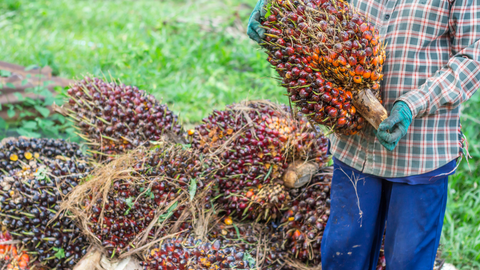Palm oil is a double-edged sword. On one hand, it's the most widely consumed, efficient, and versatile vegetable oil on the planet, used in a multitude of everyday products from cosmetics to food. On the other hand, its production has been a major driver of deforestation and environmental degradation, primarily in Malaysia and Indonesia. However, there's a ray of hope emerging from the African continent where 10 countries are taking significant steps to create a sustainable palm oil industry that not only combats deforestation but also uplifts local livelihoods.

Six years ago, seven African nations came together to sign the Africa Palm Oil Initiative (APOI). This initiative is a partnership between governments, rural communities, and businesses, with a vision of fostering a prosperous palm oil industry that promotes environmental and social sustainability while preserving the rich tropical forests of the region. APOI's approach is refreshingly different, emphasizing the involvement of local communities, as they understand the root causes of deforestation better than anyone. Their goal is to build a palm oil sector that adheres to guiding principles addressing deforestation, community rights, labor conditions, smallholder development, and biodiversity protection.
One of the key challenges facing Africa is that it consumes more palm oil than it produces, leading to substantial imports. To reduce this reliance on imports, domestic production must increase, and APOI is determined to ensure that this growth benefits smallholders, protects forests, and engages local communities.
Africa has a significant advantage: the palm oil plant is native to the region and thrives in the same equatorial climate as some of the world's most biodiverse and carbon-rich tropical forests. To avoid repeating the deforestation mistakes made in Southeast Asia, APOI actively collaborates with governments to define which lands should be protected and which can be used for food production.
For instance, in Nigeria's Edo state, which is one of the top palm oil-producing states, the government commissioned GIS maps to identify the status of forest areas. This revealed that much of the land had been encroached upon, prompting the government to frame a new forestry law that permits agricultural production only on degraded land. It also requires private companies engaged in palm oil production to restore a portion of degraded forest equivalent to 25% of their land holdings.
Another critical aspect of APOI's approach is ensuring the free, prior, and informed consent (FPIC) of indigenous people and local communities for agricultural development on their ancestral lands. This helps protect their rights and prevents encroachment on forests.

While strong laws and community consent are essential, economic incentives also play a significant role. Smallholders typically struggle to achieve the same palm oil yields as larger companies, making it vital to invest in improving productivity for sustainable production. APOI's private sector involvement, including companies actively driving palm oil production, is helping to bridge this gap. Programs aimed at training smallholders in best agronomic and management practices have doubled productivity in places like Ghana. Additionally, financial support and subsidies provided by governments further assist smallholders in scaling up production.
The success of APOI's approach is reflected in its expanding membership, including 10 countries that account for 75% of Africa's forests, particularly the Congo Basin, one of the world's most biodiverse ecosystems. As a result, APOI is now transitioning into the Africa Sustainable Commodities Initiative (ASCI), a cross-commodity approach that extends beyond palm oil to address issues affecting other forest products like rubber and cocoa.
ASCI's holistic approach aligns efforts to respond to demand-side measures, such as the European Union's regulation to ban imports of commodities linked to deforestation. It also creates a stronger case for government investment in infrastructure and regulations that facilitate the sustainability of all forest-based commodities. In doing so, it enhances the enabling environment for foreign direct investment in the region.
In conclusion, the Africa Sustainable Commodities Initiative is a pioneering effort that brings governments, local communities, businesses, and environmentalists together to create a sustainable and mutually beneficial path for palm oil production and other forest products. By addressing deforestation, community rights, and economic productivity, this initiative paves the way for a brighter, more sustainable future for the African palm oil industry and, hopefully, other forest-based commodities.




